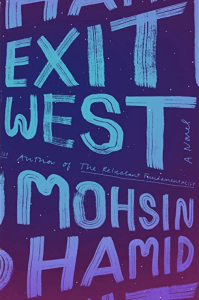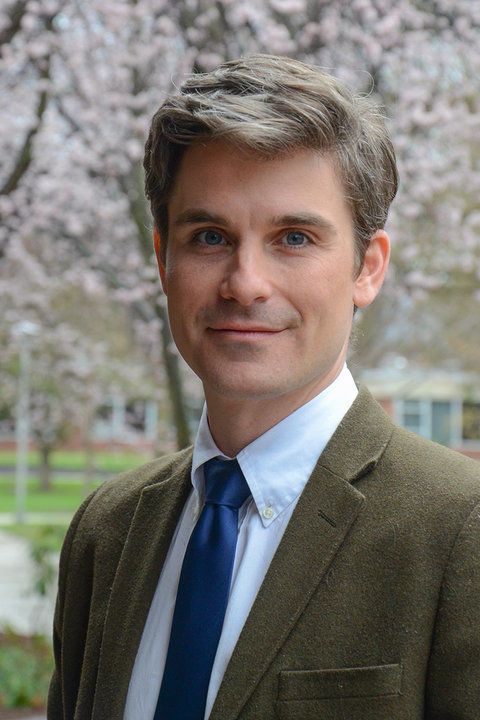By Chase Wade
This year’s Common Read book for Penn State Altoona is Mohsin Hamid’s Exit West. As part of the Common Reading Initiative, a variety of events and activities relating to the novel take place throughout the fall. One such event is “From Mind Walls to Mined Walls: The Mental Origins of the Inner German Border, 1945-1952” presented by John Eicher, an assistant professor of history here on campus. The event will be held on Thursday, October 11 from 12:15 - 1:15 p.m. in the Eve Chapel. I had the opportunity to do a phone interview with Dr. Eicher to discuss his research, Exit West, and the event he will be leading next month.
Dr. Eicher’s event will discuss the construction of the Berlin Wall and the division between the people of Germany. However, the real goal is to analyze the mental “wall” created in the more rural areas of the newly created German border. As East Germans and West Germans traveled across the border, prejudice led them to form a mental “wall” of separation. This was only symbolized when the physical wall was constructed. What Dr. Eicher made clear, and what especially fascinated me, was what he referred to as “incremental nature of drastic change.” In just 12 years, the citizens of Germany had created a border between themselves and alienated their fellow people.
I asked Dr. Eicher why he chose this topic and coordinated the event. He believes that this period in German history will reflect the borders and migration illustrated in Exit West. He also pointed out how Germany has a unique and almost constant history of migration, be it explorers, internal migrants, refugees, etc. The event will help illustrate how fast divisions can occur and how fast the desire to escape can arise from such divisions, often culminating during civil wars.
Although his event focuses on 1945-1961, he made it clear that students will be able to draw modern connections. Dr. Eicher blew my mind when he had me consider the notion that governments simply draw artificial lines between countries and groups of people, causing division that otherwise wouldn’t exist. This is still illustrated today in countries like Israel and Palestine where the struggle over borders continues.
I inquired what Dr. Eicher expects students to leave the event with; what main idea they should consider after the discussion. He said that the central idea is that, “even the most seemingly secure communities can be drastically modified by a couple of major events.” This struck me as hard to fathom at first, but he explained that big change can go noticed for years until you can look back at the changed world. That idea alarms me: Who knows what change could be going on at any given time!
We talked a bit specifically about Exit West and I asked Dr. Eicher one of my favorite questions regarding the novel: If a door opened up in his home, where would he want it to take him? Dr. Eicher said that perhaps a vacation would be nice, but this only illustrates that he has no real need to escape, unlike most migrants and refugees. He concluded that he’d like the door to lead right into his backyard! Furthermore, he presented me with an idea I hadn’t yet considered. If a door did open in your house, you must remember the possibility of refugees entering your home. Dr. Eicher said that he would like to help these people, but also mentioned the difficult moral choices regarding personal limits to help these refugees. Suddenly, my seemingly fantastical idea of a fun excursion through a “door” had changed into a much darker and confusing question of moral choice.
Dr. Eicher will address all this and much more at his event on Tuesday, October 11 at 12:15 p.m. in the Eve Chapel. He offers the notion that this conversation of migration, alienation, and persecution is still relevant today. You won’t want to miss this opportunity to explore concepts presented in Exit West in a whole new light!

